|
It was my own struggle with the pain from my childhood—followed by my ultimate decision to write my story—that made me understand the life-changing power of personal narrative.
I’d tried to write Hippie Boy for more than a decade. But the emotions bottled inside me were so painful that I cried every time I opened my computer to write and decided it was easier just to keep the hurt safely tucked away. Then, in late January 2004, I was diagnosed with Retinitis Pigmentosa, an incurable degenerative eye disease that is slowly stealing my eyesight. In my quest to save my vision, I sought treatment from a doctor in San Francisco who focuses on whole body health. He kicked off my appointment by asking me to tell him about my childhood. Within minutes, I was sobbing. That’s when the doctor said two life-changing things to me. He said, “Do you realize that you are carrying a huge negative energy charge inside of you over something that has happened more than twenty years ago and you’re still giving your former stepdad and those circumstances your power?” The idea that I was still letting my ex-stepfather take my power and voice all these years later was troubling. But that was nothing compared to the doctor’s next words. He said, “If you don’t think that carrying this inside of you is impacting your physical health, you’re crazy.” The doctor then told me about a groundbreaking study that had been done called ACE (Adverse Childhood Experiences), which documents a direct correlation between emotional trauma in childhood and disease in adults. He also talked about epigenetics — environmental factors such as emotional trauma and stress which turn on genes that trigger disease. When it hit me that holding onto the anguish from all those years ago could actually be causing me to go blind, it was a huge wake up call. It was hard, but I finally sat down and wrote my story and by the time I was done, I had found my voice and power around it and was no longer a victim of my past. Over the last eight years, I’ve helped more than 2,000 students of every age find healing and empowerment by writing the deeply personal stories they need to tell. This is what I cover in my Write Your Memoir workshop — which includes everything from story structure to the narrative writing techniques necessary to bring stories to life. And it’s why I care so much about personal story-telling. www.IngridRicks.com To REGISTER for Ingrid's June 2020 Workshop, click here
2 Comments
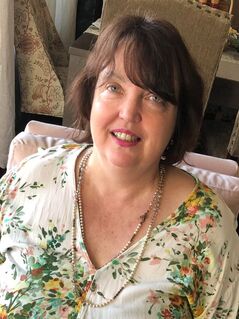 It is huge step for a writer to put themselves out there. It builds self-confidence and is an opportunity to engage with other writers. By entering contests, it is an education in self-discipline, teaches us how work within the constraints of a deadline, contests rules and applications. If we win a writing contest it can help get our name out and potentially assist in getting our work published. It can boost our author platform with speaking opportunities, social media and cash prizes. There are thousands of writing contests that vary in cost. Other contests are offered free, such as through public libraries. As with anything that requires you to spend money, it would be prudent to research the organization sponsoring the contest to rule out the possibility of a scam. There are a number of writing conferences that sponsor contests. In Edmonds the Write on the Sound writers’ conference (WOTS) is presented the first full weekend in October. It is an affordable conference that focuses on the craft of writing. They sponsor a writing contest annually with a separate theme. Each year EPIC is proud to sponsor its Annual Writing Contest for Adults and Student Authors (grades 8 through 12) in Prose and Poetry categories. First place awards receive $100 in Adult/Student and Poetry categories and $50 in Second Place Awards. The right writing contest can inform you how you measure up against other’s in the competition and what you need to learn. But taking full advantage of writing contest opportunities is work, so be prepared. Don’t be afraid to get out there and submit to the right contests! Vanessa Arpin lives in Edmonds Washington. She is currently working on a middle grade novel that received recognition at the Mendocino Writer’s Conference in 2017. In 2019 she received honorable mention at Write on the Sound for her non-fiction essay, The Perfect Lemon. She is active in a local writers group and is on the board of EPIC. When she isn’t writing she is using her storytelling skills with her six young granddaughters. 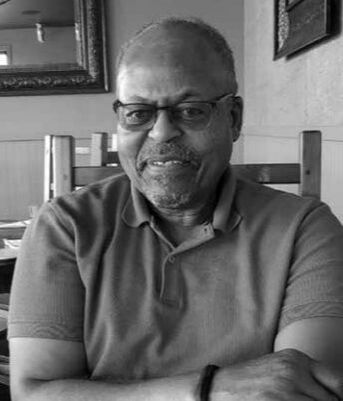 Most journeys begin with the first step, possibly a step into the unknown or a leisurely stroll down familiar streets. A poet’s journey, on the other hand, begins with the first observation. Poets tend to walk in lockstep with the old adage, “look before you leap,” and if you should find yourself tumbling through space, be sure to capture your observations of those experiences using concise, powerful language that invokes descriptive images. For the past four years, a group of poets have been meeting at the Edmonds Library on the second Tuesday of the month to create, critique, improve, and share their poetic observations. This monthly gathering is free and is sponsored by the cooperative efforts of EPIC Group Writers and Sno-Isle Libraries. All are welcome. The poetry group is comprised of curious individuals who share diverse thoughts highlighted by different life experiences. The outcome of our gatherings consistently produce thought-provoking poems that sometimes elicit tears, laughter, or on rare occasions, a few good-natured, but heated, disagreements. As poets we see, smell, touch, and feel our way through life. Somethings that we encounter are experienced at the surface, some are ethereal, and some hide in the deep, dark crevices of our underpinnings. We observe, digest and express. A life ignored is a life lost. A life observed is a life lived. For us, poetry is a journey best spent in the company of fellow travelers. Gerald Bigelow was published in the Arizona Centennial Anthology and in Between the Lines. He is a board member for EPIC Group Writers and chairs a monthly poetry group, and edited and contributed to Soundings from the Salish Sea (A Pacific Northwest Poetry Anthology). In 2019, Bigelow was selected to read his poetry with the Washington State Poet Laureate. He helped establish a bi-monthly Poet’s Corner featurette in My Edmonds News to show case the work of local poets. Bigelow has a new book of poetry on Amazon Titled, Memories Looking Through a Screen Door.  In the excellent writer’s craft book, The Art of Character, by author David Corbett he writes, ‘describing your character kills her.’ I agree. Descriptions can suck the joy out of a reader’s experience, and reveal a writer’s limited imagination. When describing female characters in particular, try to avoid a laundry list type of description; blonde, blue-eyed, long-legged, busty…Instead, or in addition, give some insight into who she actually is, her soul, heart, or essence. Avoid the stereotypes. For example, “she’s attractive even without the makeup” or “stunning despite her age” or worse, “was good-looking 10 years ago” or any other worn-out, exhausted, condescending, and overused physical descriptor. If there is something about her presence that is significant to the story, or that makes her unique, then yes, please share, otherwise give your readers the gift of using their imagination. When describing your characters consider their essence; Sasha’s hair was as red hot as her temper. Tie the descriptor to a character attribute (temper). Gabby’s eyes were emerald fire. That gives us an insight into her soul (passion, sexuality, enthusiasm, etc.). Kendra’s hair was palm-oil slick, her skin celestial black, she moved across the room like a Nubian queen. This gives us insight as to color of character, attitude, and beauty. All of those above examples create images in the reader’s imaginative mind. When writing your character descriptions be creative, use metaphor or simile. Consider combining physical descriptors with movements and gestures, or using your characters action to reveal who they are. Be creative; give insights and essence statements so your readers can enjoy the journey of character discovery. Post by author, writing instructor, and EPIC board Member, Mindy Halleck 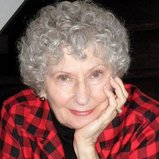 EPIC President Judith Works EPIC President Judith Works WELCOME TO ANOTHER GREAT YEAR FOR EPIC GROUP WRITERS! Dear Members and Other Readers, As your president for another year, I want to welcome you to 2019, another year which holds much promise for our members and all writers. Last year several of our members published new books, poetry, blogs, and essays and I’m sure the new year will bring even greater successes. I’d like to introduce our board. Please feel free to contact any one of us with your comments and suggestions: President: Judith Works VP for Membership: Susan Frederick VP for Development: Laura Moe Secretary: Mindy Halleck Treasurer: Victoria Peters Board Member: Gerald Bigelow Board Member: Paddy Eger Board Member: Nicole Chen Board Member: Kizzie E Jones Board Member: Laura Kemp Board Member: Vanessa Arpin The Board of Directors will be meeting next week to plan our year. We have many exciting ideas but are always happy to consider your input. And when we list our planed programs and projects for the year, I do hope you will consider participating in them and even volunteering to help put them on – a great way to get to know your fellow writers. Also, January is a time for membership renewal and for new members to join to support all area writers. Please do consider becoming part of the EPIC family by going to our website at EPICgroupwriters.org and clicking on the membership button. Happy Writing!! Judith by Sandra Walker
Reading magazine interviews, an autobiography, or book on the writing life, an author's solitude is revealed. One lone writer with voluntary confinement savoring minutes of silent concentration while oblivious to time and mundane concerns. Out of this surrounded silence comes creative essence. The subconscious surfaces in quiet stillness and this beneficial state provides an expressway to productive work, for where focus goes, energy flows. Yes, we writers need the discipline to settle into solitude, allowing interior time to percolate through thoughts. However, even when existing alone I find I'm engaged with character relationships, with the reader's perception, with an editor's view. The poem, No Man is an Island, by John Donne (1624) remains a guide for writers. No man is an island, Entire of itself, Every man is a piece of the continent, A part of the main. So venture from an island into the active flow of the writers' community to enjoy involvement in becoming an established writer. The discipline to select classes, attend library programs, spend social time with authors, schedule conference days from the many sources available provides breadth to the writing life. The Northwest is abundantly rich with literary opportunities. Our EPIC Wall newsletter for Writers and Literary Lovers regularly lists the range of events to give timely information. Anne Lamott's bestseller, Bird by Bird, in Part Three "Help Along the Way" states, "Being a writer guarantees that you will spend too much time alone and your mind will begin to warp. You may begin showing signs of schizophrenia..." And in characteristic Lamott fashion, she creates a very funny, long paragraph about imaginary fears that rise in an author's lonely, isolated mind. EPIC erases the "warp" and stops the "schizophrenia." From our private nook we can be refreshed, revitalized by the fellowship in EPIC. Writing is serious business. But, our story needs contrasts to eliminate a monotone style, which occurs when we feel drained and dull. To lighten the serious side, balance individual time with the benefits of lively social interactions, instructive classes, and supportive writing groups. EPIC offers writing groups in a range of literary interests: poetry, fiction, nonfiction, memoir, historical fiction, travel writing. We need knowledgeable partners who share constructive help, and we can share experiences plus creativity with fellow writers. Team members from your group will become the base for a book launch and book signing. Balance the moments of peaceful solitude and solo performance with an active interaction arising from a chorus of authors. Belong to EPIC, an educational, social, and inspirational association for all writers. Come communicate with our expressive community in order to balance writing alone with being involved. Please join our expanding EPIC group. Hope to see you soon. www.epicgroupwriters.org 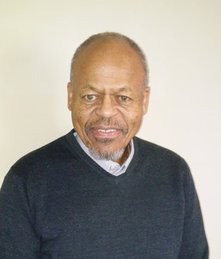 By Gerald Bigelow Unaccustomed as I am to blogging, I am making my first foray into this endless cascade of flowing thoughts and ideas. From time to time, I will tell you what I think about this or that. However, I will not talk to you about whether or not I had either a good or bad cup of coffee, notwithstanding the fact that I have never drunk a cup of coffee in my life. Likewise, you will never know if my mattress is comfortable or if my pillow is stuffed with either foam or buckwheat husks. Finally, I will never recommend an over-the-counter laxative or tout a generational home remedy. With that said, welcome to my blog! I will always respond respectfully to your inquiries, and demonstrate a willingness to listen and provide an objective response. Most journeys begin with the first step, possibly a step into the unknown or a leisurely stroll down familiar streets. A poet’s journey, on the other hand, begins with the first observation. Poets tend to walk in lockstep with the old adage, “look before you leap,” and if you should find yourself tumbling through space, be sure to capture your observations of those experiences using concise, powerful language that invokes descriptive images. For the past two years, a group of poets has been meeting at the Edmonds Library on the second Tuesday of the month to create, critique, improve, and share their poetic observations. This monthly gathering is free and is sponsored by the cooperative efforts of EPIC Group Writers and Sno-Isle Libraries. All are welcome. The poetry group is comprised of curious individuals who share diverse thoughts highlighted by different life experiences. The outcome of our gatherings consistently produce thought-provoking poems that sometimes elicit tears, laughter, or in rare cases, a few good-natured, but heated, disagreements. As poets we see, smell, touch, and feel our way through life. Some things that we encounter are experienced at the surface, some are ethereal, and some hide in the deep, dark crevices of our underpinnings. We observe, digest and express. A life ignored is a life lost. A life observed is a life lived. For us, poetry is a journey best spent in the company of fellow travelers. Come and join us! In the immortal words of Chaucer, “So priketh nature in here courages / Thanne longen folk to gon on pilgrimages.” © Copyright 2017 G.M.Bigelow 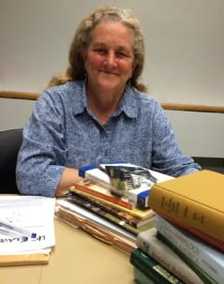 Here's to an EPIC 2017! Thank you for supporting EPIC Group Writers in 2016! Your support has made all the difference in creating a vibrant writers’ community and we couldn't do it without you! We ask that you take a few moments now to join EPIC or renew your EPIC membership for 2017. It’s easy to join by clicking here! Here are highlights of EPIC’s 2016 service to the community:
And, speaking of 2017, EPIC has been hard at work planning for the New Year. Starting in January, a new free writers’ group led by EPIC board member, Christine Pinto, will begin. (Further details to be posted soon.) Also in 2017, EPIC will sponsor the 5th annual writing contest for adults and youth, coordinating with local high school English teachers. EPIC board members will again serve on the WOTS Steering Committee, and continue partnering with the Arts Commission on the Rainworks project scheduled for Fall, 2017. With our members’ vital support, EPIC will offer expanded services to help members learn, create and publish. The more members EPIC has, the more it can do for the community. YOU can join EPIC in 2017. If you are a writer, you may choose to partner with fellow writers in a genre-based group, such as poetry, historical writing, travel writing, or in a multi-genre writing group. If you’ve never written before, or are a seasoned writer, you’ll belong to a supportive writers’ community and will reap the benefits.You can broaden your skills, create goals, and develop an in-depth focus through a year of meaningful activities with EPIC. If you’re not a writer, won’t you please be an EPIC friend and make a $25.00 tax-deductible donation? Please support this worthy, community-building cause. So, what’s holding you back? Join EPIC today! or mail a check to EPIC Group Writers, at P.O. Box 1622, Edmonds, WA 98020. We look forward to thanking and welcoming you! Susan Ferguson President, EPIC Group Writers by Roma Anjoy 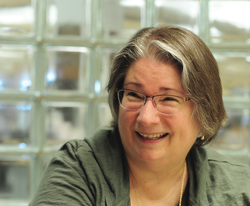 November is the month when many writers participate in NaNoWriMo: National Novel Writing Month. The idea is to set a word count goal for the month and try to reach it. The default goal is 50,000 words, but you can pick any number you want. There’s a website you can visit (NaNoWriMo.org) with lots of tips and encouragement. Some people spend the month of October getting ready for NaNo by using character development sheets, plot-point graphs, setting description generators, and other writing tools. Some install fancy new software to help them chart their progress scene by scene or create elaborate outlines of their work. I spent the month of October getting ready too, but here’s what I did. I culled through all the books on my bookshelves (I set a rule for myself several years ago: “No buying more bookshelves”) so I could make room for the newer books sitting around in little piles waiting for a home. Result: two bags of old books. I went through my closet, putting away summer clothes and weeding out stuff I no longer wear, including shoes. Result: two bags of clothes and shoes. I went through the garage, looking for an old photo album, but while I was there I eliminated two boxes of stuff. I combed through my kitchen cabinets and drawers, removing duplicate or unneeded items to make them more commodious. Then I made a trip to Goodwill with all that stuff. Meanwhile, I made sure I had a good supply of writing pads with different colored paper and pens with ink in various hues. I write first drafts by hand. I find it fun and mentally refreshing to switch background and ink colors. I cleared my dining room table, laying out all the supplies I would need, and collecting all relevant notes, photos, etc. I’m working on a memoir, so I know the basic story, but it helps to have object that can jar the memory. I returned all my library books, created an out-of-sight space to store unread personal books and magazines. I cleared my inbox (well, as much as I could), unsubscribed to extraneous newsletters and webinars that would be a distraction during the coming month, and generally put my home and my life in order. I call it “clearing the decks.” I write in spurts, and when I feel a spurt coming on (or when I have planned for one) I seem to need to circle around it for a while, making room for it in my life. The side benefit is that I return to a more well-ordered life. And that’s a good thing. So I win either way, whether or not I complete my NaNoWriMo goal. 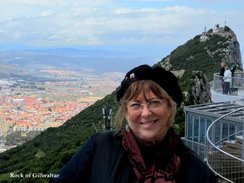 by Vivian Murray It is occasionally mentioned in workshops or books on the craft of writing, how effective a physical object can be when subtly weaving it through your story. I just finished reading the book The Velvet Hours by Alyson Richman which uses a large 19th century portrait of a Parisian courtesan as an occasional object from beginning to end. Even without a picture to physically see, the author showed the reader the gilded frame, the woman’s posture, colors, and fabrics. It easily came to mind whenever the painting was mentioned at various intervals of the story. It was a familiar object. And, what I loved about this book was how the author wrote it as a fictionalized account of a newspaper article. It was a story of a family learning about their great-great grandmother’s apartment in Paris which was locked up for over 70 years . When opened by family heirs in 2011, it was as if time stood still and they walked into 1940s Paris. I remember reading the newspaper article and posting it on Facebook. I was fascinated by the story and thrilled someone wrote a book about it. If you decide you want an object for your story, how do you discover what it will be? As writers, we understand inspiration arises from unexpected places. You may be in a writers’ group when a new story pops into your head and the first draft is soon underway. Perhaps you are sitting at your desk or on a plane thousands of feet in the air when an idea for a new character is born. You can be anywhere. That’s the beauty of being a writer. It wasn’t long ago, when housecleaning, when an object in my home reminded me of someone I once loved. I wiped dust off the Chinese decorated antique mirror and remembered a time, 43 years ago, when this man I loved looked at his reflection in this mirror, while in my mother’s home. I was across the room watching him when his reflection caught mine and we locked eyes. It was a moment caught in time. He’s been gone many years, but, oddly, his reflection and that memory remain in the wavy glass of this mirror. My thoughts, as I continued dusting, trailed off to another time I could only conjure up in my imagination. It occurred to me my grandfather may have bought this mirror for my grandmother when they were first married in Shanghai in 1929. The mirror, with its new glass, survived WWII hidden in a Shanghai cellar. It was kept with other curios and precious objects out of sight. These were protected from the Japanese invasion and confiscation because they were in the cellar of a White Russian friend of my grandmother’s. If a Russian was married to a citizen of an enemy country, they were sent to Japanese internment camps, which was the case of my grandmother and mother who spent 4 years in a camp because my Russian grandmother married a British man. After the war, in 1947 the mirror took a journey by ship to the United States and hung on the wall of my grandmother’s San Francisco flat until well into the late 70s. The mirror had its own journey over the next 37 years when it lived in my mother’s home in Pleasant Hill, CA; Colorado Springs, CO; then to my home in Seattle, eventually settling in Edmonds 11 years ago. I imagine one of my children and one of my grandchildren will take it from here. And so it was a day of simple housecleaning which created my story-object. I can carry this mirror through my book for almost 100 years of my family’s history. I can write a historical fiction showing the reader many of the faces reflected over time, some known and some imagined; we have so much freedom as writers to create whatever we wish! Stories and ideas pop up for writers from unexpected places; we are delighted when they pop up at all. |
We have such a variety of writers in our organization that we thought it would be fun, exciting and enlightening to have multiple blog post authors.
We will be sharing all sorts of writing-related topics! Archives
July 2021
|

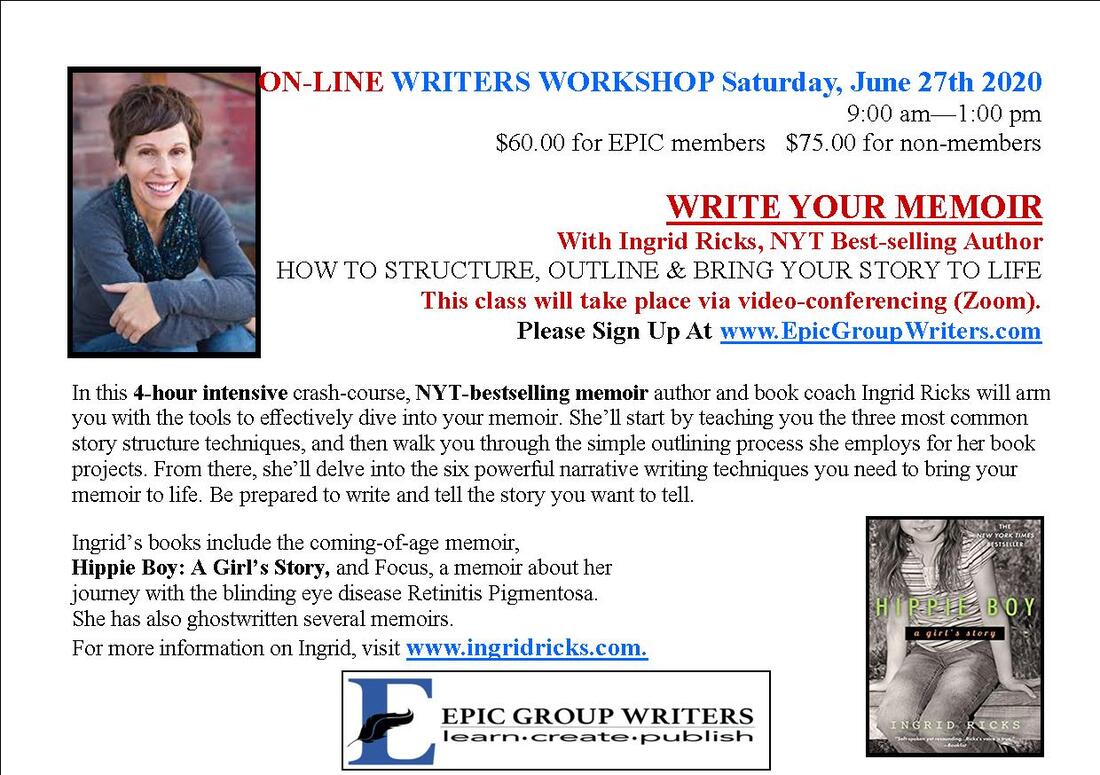
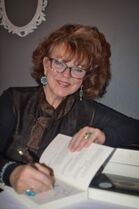
 RSS Feed
RSS Feed